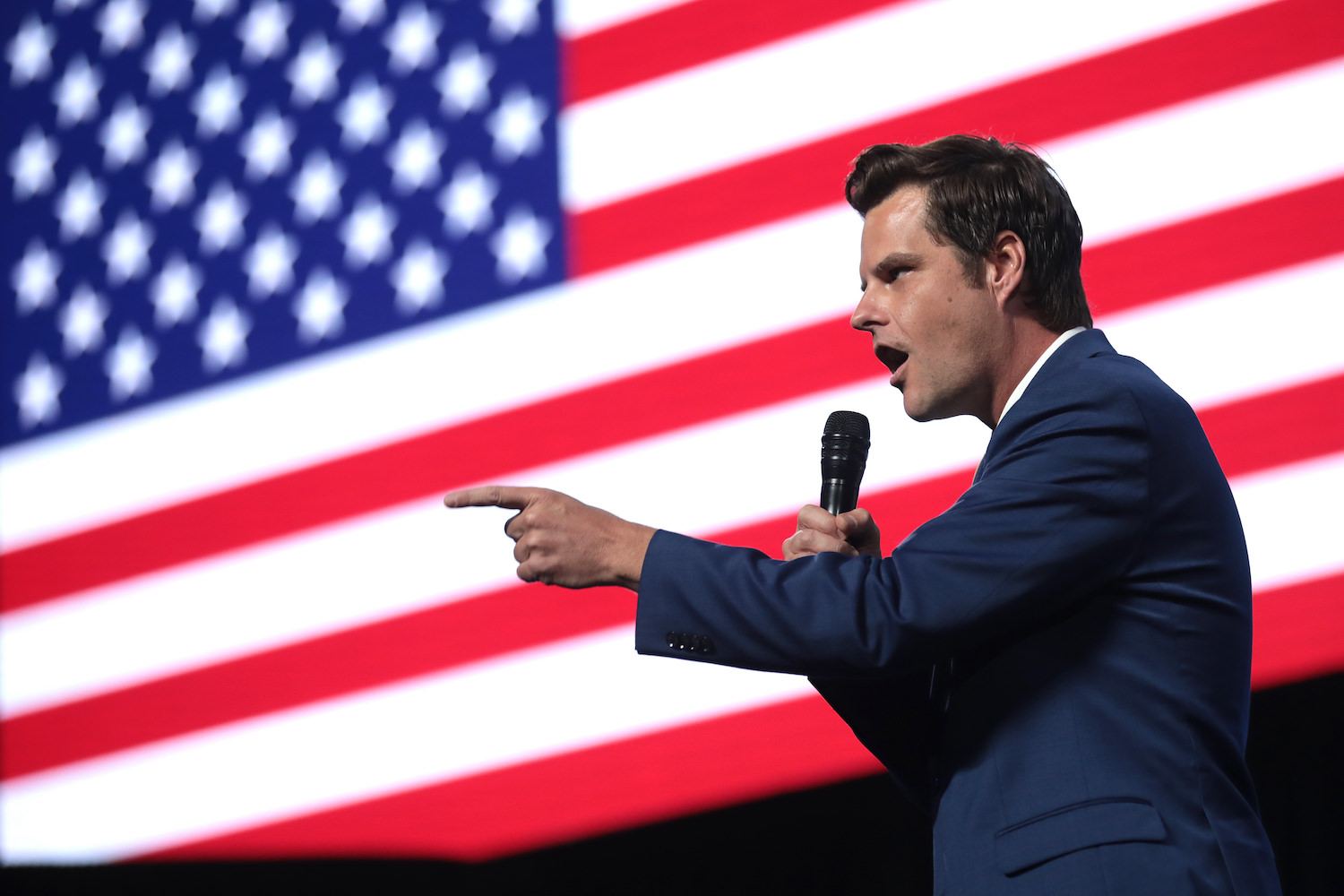The debt ceiling standoff revealed the presence of an interesting statistic, hiding in plain sight: 70 percent. The House averted financial disaster by passing a debt ceiling compromise with a vote of 314 out of 435—or 72 percent. The Senate passed its measure 63–36. When the chips are down, Americans overwhelmingly choose stability, sanity, and prosperity.
The same statistic—around 70 percent—is turning up elsewhere as well. A new poll by Navigator Research shows that 65 percent of Americans believe that Donald Trump has committed crimes. Among independent voters, the number is a startling 68 percent. While it might be tempting to suggest that the country is suddenly lurching toward a newly acquired centrism, the statistics may reveal more about the structure of the attack we have endured for roughly the last decade.
The American public can be crudely sorted into three political buckets: left extremists, right extremists, and everybody else. Depending on how one counts, the extreme wings account for about 30 percent, while the rest constitute the remaining 70 percent. Primary elections (which have low participation rates) seek to energize the 15 percent in each wing and often end up selecting candidates who win with a narrow plurality. So in a four-way party primary race, a candidate could win with 30 percent of the vote within their party, which might represent a very narrow slice of the population as a whole.
One way to understand our current situation is as an attempted insurgency of what the fascist political theorist Francis Parker Yockey (1917–1960) termed a “red-brown alliance” of left- and right-wing extremists against the majority. This is very much part of the contemporary and historical fascist playbook. Yockey posited an alliance between illiberal forces that could overtake what he believed was, to keep things simple, a cabal of globalist bankers oppressing the world. That idea, which Yockey lifted from other folks like Oswald Spengler (Decline of the West), has been taken up by everyone from Yockey’s apostle Willis Carto, who seeded various antisemitic and fascist movements in America, to Vladimir Putin. Alexander Dugin’s “NazBol” (Nazi-Bolshevik) alliance in Russia is the blueprint for today’s arranged marriage between Germany’s left “Die Linke” party and the far-right neo-Nazi Alternative für Deutschland party (AfD).
Whether they are witting and fully cognizant of it or not, when we see “The Squad” voting with their right-wing extremist counterparts like Marjorie Taylor Greene, Matt Gaetz, and Lauren Boebert, a red-brown alliance is on display. When primary candidates in both parties have to bow to extremists in their wings in order to gain endorsements, it gives power to those extremists and makes it easier to stifle policy favored by the majority. And while it is perfectly valid for minority factions to try to seek power through electoral engineering, it is unreasonable to expect that the majority will not also assert itself eventually.
I believe we are witnessing the resurgence of the majority and the curdling of the remnants of a failed red-brown strategy. And unfortunately, it took a near-death experience provoked by a nonsensical statutory limitation, the debt ceiling, to bring it to the foreground. When Americans were presented with a clear choice—either stability or chaos—we ultimately made the correct one. The 70 percent made its presence known, overwhelmingly and without equivocation. Unfortunately, we don’t put sanity on the ballot near often enough to see those flashes of consensus. But when we do, the signal is crystal clear.
With this victory, the Biden administration has opened the door, even if only for the next 18 months, to a new Pax Americana marked by stability and consensus. While we have many challenges ahead, including a contentious 2024 election, the possibility of indictment and conviction of former President Trump, and a 2025 rendezvous with the dreaded debt ceiling once again, we have all but crushed the hopes of Putin and his allies. They now face a grinding defeat in Ukraine and financial oblivion. Putin’s BRICS currency project, led by Sergei Glazyev, seems more like a stillborn criminal money-laundering network than a serious challenge to dollar hegemony. Putin has consistently overestimated the influence of his global fifth column, and people like Tara Reade are literally running scared to Russia.
We may see some turbulence in the wake of the wart-laden debt deal, as federal borrowing ramps up to the new limit, potentially squeezing money supply and pushing inflation up. Otherwise, inflation is down for at least 10 months in a row, which suggests interest rates will also eventually moderate, thus keeping banks safe from additional risk. The cryptocurrency “industry” is moribund, with many of its top cheerleaders moving on to artificial intelligence hype schemes. Commercial real estate is an area of concern, as downtown offices have emptied out due to remote work, and it seems like we’ll need to refocus our cities around culture and new modes of work. But overall, Biden has all but de-risked the remainder of his term and may have positioned himself well for a second.
The majority is back, and it should assert itself more regularly if we want to keep fascism at bay. We should seek more opportunities to put majoritarian issues and candidates onto ballots. Because when commonsense leadership is on the ballot, Americans choose it. Crafting platforms that can succeed in both primary and general elections can be a challenge, but that’s where moral courage comes into play: simply having the guts to speak one’s convictions and then follow through on them. That is still a winning strategy.
This isn’t a call for some kind of flaccid centrism. Far from it. But we should recognize and explicitly reject the counterproductive distortions wrought by extremism. The majority wants stability and supports long-held American values: freedom, equality, fairness, decency, and justice. We should cede none of these to extremists. Indeed, if we want to exemplify these values, the majority should forcefully pursue them, as that is where the most power to advance them lies.







0 Comments